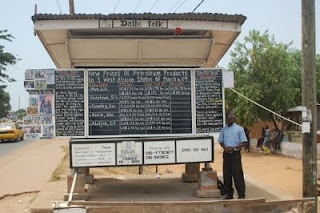I was just thinking the last few days about how I should write something about Acemoglu & Robinson’s theory of revolution and how it applies to the Middle East.
Well Tim Harford got there first, and probably does a much better job than I would have:
What kind of concessions should protesters look for? According to the economists Daron Acemoglu and James A. Robinson, who have built a detailed series of game-theoretic models of political transition, the answer is: ones that cannot be easily undone. Tunisia’s Ben Ali will surely not return, but already activists are concerned that democratic reforms may not be entrenched, and have returned to the streets to protest. Mubarak may be Egypt’s past, but Egypt’s future is unclear.
A fresh constitution, civil rights, and credible elections are all ways of safeguarding the gains so far. The revolutionary protesters are right to insist on them; it would hardly be a surprise to see feet being dragged by those who profited from the status quo.
It is intriguing to view events in the Middle East through this game-theoretic lens. For example, Saudi Arabia’s “royal gift” of $35bn does not seem to have satisfied activists in the kingdom. That makes sense: gifts can be withdrawn. If a dictatorial government can vent the revolutionary head of steam for a while, then the momentum for reform may be dissipated for many years - especially if the ringleaders are rounded up while all is quiet.
The one thing he touches on but does not quite make explicit is the importance of television. The trouble with revolution is that you have to solve a massive coordination problem in order to get everyone out onto the streets at the same time. Nobody wants to be the first one to the party and have to make awkward small-talk with the hosts. Better to arrive when things are in full-swing.
Much has been hyped about the role of Twitter and Facebook, but it seems to me that the real driving force has been the ready news of martyrs, accompanied by moving images, live evidence of the mass crowds out there, and the proven impact shown by the departure of Ben Ali and Mobarak. It was television, not Facebook, that did this.
In the words of the rather prescient-looking Charles Kenny:
Forget Twitter and Facebook, Google and the Kindle. Forget the latest sleek iGadget. Television is still the most influential medium around…
TV is having a positive impact on the lives of billions worldwide, and as the spread of mobile TV, video cameras and YouTube democratize both access and content, it will become an even greater force for humbling tyrannical governments
-----
Addendum:
In the course of finding that Charles Kenny quote, I came across this marvellous paper on the economics of Baywatch.
"aid and Baywatch may have about same value [to people in dev countries]"



